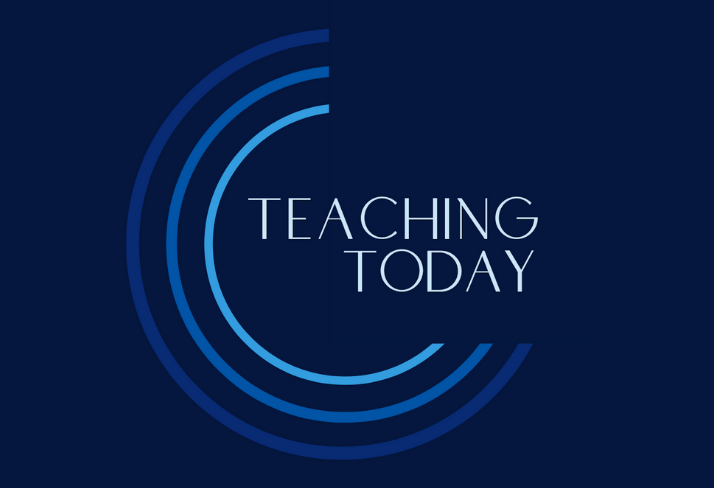|
This time of uncertainty can create new opportunities to cultivate 21st century skills.
In 2011, three researchers embarked on a journey to better understand how high-achieving schools around the world were preparing students for the 21st century. Their research took them to seven countries, hundreds of classrooms, and thousands of samples of student work. This seminal research had two significant results: first, the development of the original Global Capacities Framework — an outline of essential domains and capacities that outlines students’ needs in education for the next 100 years; and second, a dynamic, collaborative community of K-12 schools and university partners who appreciated the learning experience so much that they didn’t want the research to end. And that’s the story of how the Global Learning Alliance (GLA) came to be.
The founding members of the GLA — from the US, Finland and Singapore — formed the Governing Board, and the community grew to include delegations from China, Australia, Denmark, Sweden, Canada, and South Africa. With roughly 15 partner organizations and 60 individual delegate members, the community comes together every two years to share promising practices, find connections on global issues, and deepen the research into developing 21st century skills through cross-cultural, project-based learning experiences. Professor Suzanne Choo of the National Institute of Education (NIE) in Singapore — one of the original researchers and the leader of our student research projects — said she is hopeful that these types of deep project work can not only jump-start students’ academic skills, but can be a bridge for students to develop lifelong friendships.
Cross-cultural collaborations
The biennial Global Learning Alliance Summit was scheduled to kick off in New York City earlier this year, with a focus on fostering a sense of student belonging at school. Enter: Coronavirus. As we collaborated with colleagues around the world, we were cognizant that COVID-19 was going to have a major impact on the Asian delegations — but we were hopeful that everything would blow over in a few months, so we proceeded with our planning. (Spoiler alert: it did not blow over.) We began discussing the need to postpone the event on behalf of our partners who were being slammed with cases in late February and early March, and then COVID-19 hit home. Rocked by COVID’s impact on schools, every country has continued to make critical decisions that affect not only students’ learning, but their lives. We’ve learned a lot from one another as we’ve continued our collaborations during this time, and ironically, we’re still talking about the responsibility of schools to create a sense of belonging and connection for students. In fact, this issue seems even more important during a time of disrupted learning. Our approach to implementing cross-cultural projects for students has had a major impact on the development of 21st century mindsets, (outlined in our Global Mindset Framework) that can support students to tackle challenges like COVID-19 in the future. COVID-19 has undoubtedly interrupted the opportunities for the GLA to meet together in person, but it has also reaffirmed the value of cross-cultural collaborations for students, school leaders, and academic scholars. Teachers College Professor Ruth Vinz reflected, “At all levels, what these projects can do is help us to make connections. When we work together, we learn together.” Clarinda Choh, Director of Staff Development at Singapore’s Hwa Chong Institution, believes that cross-cultural projects build a deeper awareness on learning how students learn, helping students and educators to bring attention to their similarities.
Embracing 21st century mindsets
As we reflect on the Global Mindset Framework in light of the current health, economic, and political crisis, it seems more relevant than ever before. In particular, cultivating a Global Consciousness requires us to engage in Real-World Problem-Solving. In many ways, we are living through a case study of what to do — and what not to do —when approaching problem-solving on a global scale. Using current events, media sources, and government responses around the world will be instructive in how we are able to learn from these experiences and support students to develop the problem-solving and collaboration skills they need as they grow into adulthood. At best, these are uncertain and unsettling times. Ironically, one of the 21st century skills that I have struggled with, Appreciating Ambiguity, is the one that’s most needed right now. We are learning to shift our mindsets to hold multiple truths: these are very difficult times, and we don’t know what the long lasting impact will be. In times of great uncertainty, there are opportunities for deep learning, powerful collaborations, and inspiring innovations. We don’t yet know when to expect the end of this global crisis we’re in, but we do know that the best way to get through it is together. That being said, one of the Framework’s skills I’m most inspired by right now is the ability to Imagine. Especially when walking in uncharted territory, it is so easy to become overwhelmed by the pressures and fears within each day. It’s too easy to focus on what should be, rather than on what is. But when we begin to imagine, when we begin to envision what has yet to become, the world of possibilities opens up before us. |
|
The Center for Professional Education of Teachers (CPET) at Teachers College, Columbia University is committed to making excellent and equitable education accessible worldwide. CPET unites theory and practice to promote transformational change. We design innovative projects, cultivate sustainable partnerships, and conduct research through direct and online services to youth and educators. Grounded in adult learning theories, our six core principles structure our customized approach and expand the capacities of educators around the world.
|
ABOUT US
525 West 120th Street, Box 182 New York, NY 10027 416 Zankel Ph: (212) 678-3161 [email protected] Our Team Career Opportunities |
RESOURCES
Professional Articles Ready-to-Use Resources Teaching Today Podcast Upcoming PD Opportunities |
COACHING SERVICES
Custom Coaching Global Learning Alliance Literacy Unbound New Teacher Network Student Press Initiative |

























